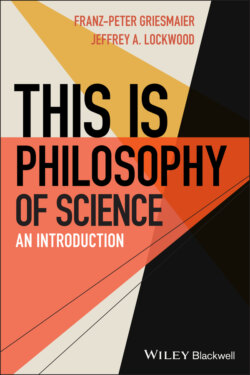Читать книгу This is Philosophy of Science - Franz-Peter Griesmaier - Страница 43
3.3.2 Basic Statements
ОглавлениеWhat statements are accepted as basic at a given time? In contrast to the positivists, who thought they have found epistemically privileged statements in so-called protocol sentences, which allegedly describe the experiential bedrock for all of our theorizing, Popper thought that what statements are accepted as basic depends on the experimental context and can change over time. He did provide a list of considerations that should be involved in any decision process about basic statements. First, they must be easy to test. In Prout’s time, finding the atomic weights was thought to be easy. Second, they must be relevant to the theory undergoing testing. When Prout claimed that the weights of all elements are whole multiples of the weight of hydrogen, it was clear that a relevant basic statement is one about the weight of some element other than hydrogen. Third, we must keep in mind that their acceptance is provisional, and should the need arise, they too can be tested relative to other statements that are then accepted as basic for that purpose. The statement about chlorine was accepted as basic when it was used in an attempt to falsify Prout’s claim. But the experimental methodology eventually became the subject of testing itself when it was determined that the available procedures for purifying substances were imperfect. Testing the standard purification procedures required other statements to be accepted as basic. Thus, on Popper’s considered view, the process of falsification is a far cry from simply finding out that nature is in conflict with a hypothesis. Instead, it is embedded in a context of continuing criticism, where in principle nothing is exempt from criticism. There is no epistemic bedrock.
